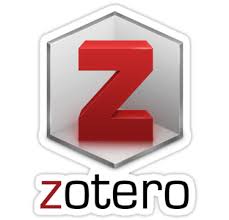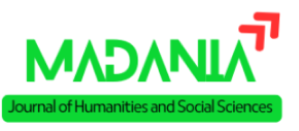From the Classroom to the Dark Room: Corruption Resistance in the World of Education
DOI:
https://doi.org/10.59240/kjsk.v5i1.206Keywords:
Educational Corruption, Corruption Resistance, Anti-Corruption Education, Participation of Educational ActorsAbstract
Corruption in Indonesian education is still a serious problem that threatens the integrity and quality of educational institutions. This study aims to analyze the forms of resistance to corruption that emerge in the educational environment and to formulate effective strategies in strengthening anti-corruption culture. Using a qualitative approach based on literature studies, this study examines literature, official reports, and national survey data related to corruption practices and resistance in the education sector. The results of the study indicate that resistance to corruption has begun to grow significantly, both at the institutional and personal levels. Forms of resistance include the integration of anti-corruption education into the curriculum, the habituation of a clean culture in schools and campuses, and the active participation of teachers, students, students, and the community in monitoring and reporting violations. Data from the 2024 KPK Education Integrity Assessment Survey (SPI) shows an increase in awareness and participation of education actors, although the application of anti-corruption values is not yet evenly distributed and consistent. This study emphasizes the importance of synergy between educational character, transparent governance, and the use of information technology as a strategy for corruption resistance. This study recommends strengthening anti-corruption literacy and sector collaboration to create a clean, transparent, and integrated educational environment.
References
Hasan, Zainudin, and Daniel Junesco. "School Efforts in Preventing Corrupt Practices in the World of Education." Referendum: Journal of Civil and Criminal Law 1, no. 4 (2024).
KPK. Guide to Anti-Corruption Education Implementation Report on the JAGA.Id Platform, n.d.
KPK, Annual Report Team. KPK Annual Report 2024 "Continuous Mission in the Middle of Transition," 2024.
Lenaini, Fish. "Purposive Sampling and Snowball Sampling Techniques." HISTORIC: Journal of Studies, Research & Development of History Education 6, no. 1 (2021).
Munib, Achmad, and Fitria Wulandari. "Literature Study: The Effectiveness of the Horay Course Review Type Cooperative Model in Science Learning in Elementary School." Journal of Basic Education Nusantara 7, no. 1 (2021).
Muspawi, Undari Sulung and Mohamad. "Understanding Research Data Sources: Primary, Secondary, and Tertiary." Journal of Edu Research: Indonesian Institute For Corporate Learning And Studies (IICLS) 5, no. 3 (2024).
Permana, Sidik, and Mursyid Setiawan. "Corruption in the Education Sector in Indonesia: Reality, Causes, and Solutions." Integrity: Journal of Anti-Corruption 10, no. 2 (2024).
Sigit Wijaya. "The irony of education is that it is a land of corruption." 2022, 2022. https://doi.org/https://antikorupsi.org/id/ironi-pendidikan-jadi-lahan-korupsi.
Sitasari, Novendawati Wahyu. "Getting to Know Content Analysis and Thematic Analysis in Qualitative Research." Scientific Forum 19, no. 1 (2022).
Sugiyono. Quantitative, Qualitative and R&D Research Methodology, 2020.
ICW Team. "The 2023 Year-End Report (LAT ICW 2023) 'Growing in Collaboration.'" 2024, 2024.
Wijayanti, Dwi. "Anti-Corruption Education in the Perspective of the Teachings of Ki Hadjar Dewantara." Journal of PPKn 6, no. 1 (2018).
Downloads
Published
How to Cite
Issue
Section
License
Copyright (c) 2025 Mutia Oktavianti, Na’imah, Siska Dewi, Adinda

This work is licensed under a Creative Commons Attribution-NonCommercial-ShareAlike 4.0 International License.






